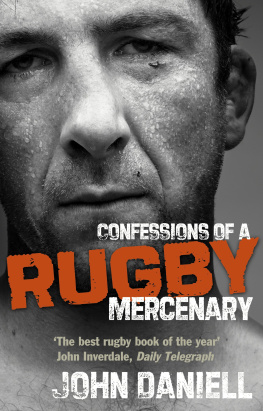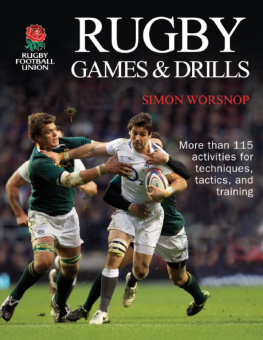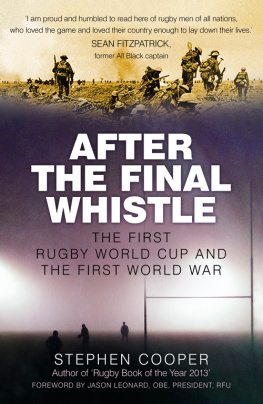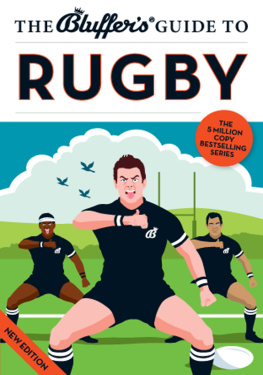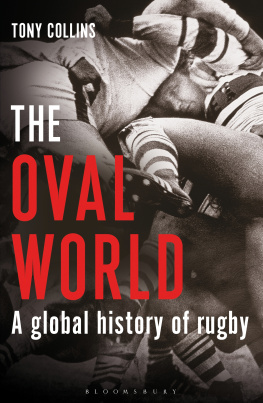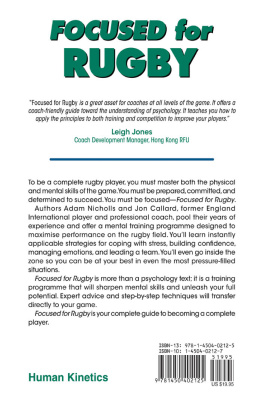Contents
This eBook is copyright material and must not be copied, reproduced, transferred, distributed, leased, licensed or publicly performed or used in any way except as specifically permitted in writing by the publishers, as allowed under the terms and conditions under which it was purchased or as strictly permitted by applicable copyright law. Any unauthorised distribution or use of this text may be a direct infringement of the authors and publishers rights and those responsible may be liable in law accordingly.
Version 1.0
Epub ISBN 9781407027166
www.randomhouse.co.uk
1 3 5 7 9 10 8 6 4 2
First Published in New Zealand by Awa Press in 2007
This edition published in 2009
by Ebury Press, an imprint of Ebury Publishing
A Random House Group Company
Copyright John Daniell 2007
Epilogue copyright John Daniell 2009
John Daniell has asserted his right to be identified as the author of this Work in accordance with the Copyright, Designs and Patents Act 1988
All rights reserved. No part of this publication may be reproduced, stored in a retrieval system, or transmitted in any form or by any means, electronic, mechanical, photocopying, recording or otherwise, without the prior permission of the copyright owner
The Random House Group Limited Reg. No. 954009
Addresses for companies within the Random House Group can be found at www.randomhouse.co.uk
A CIP catalogue record for this book is available from the British Library
ISBN 9780091930684
To buy books by your favourite authors and register for offers visit www.randomhouse.co.uk
First edition published in 2007 by Awa Press
16 Walter Street, Wellington, New Zealand.
Introduction
MERCENARY IS NOT a pretty word. It sounds like a cold-eyed thug ready to change his loyalty for money. I am a mercenary, and so are most of my friends. If, as George Orwell said, serious sport is war minus the shooting, we are its soldiers, playing out make-believe conflicts in front of partisan crowds. We do this for money and for the love of the game, but mainly for the money.
As a rule we are known as professional rugby players. This is a bit like calling a spade a shovel: you could be forgiven for thinking they are the same thing, but if you have to actually work with one you soon see the difference. To understand what makes them different (professionals and mercenaries, not shovels and spades), you need to know about rugby.
These days rugby may look like an organised career move, but I fell into it for want of anything else to do. My degree in English literature hadnt proved to be the instant passport to a high-flying career in journalism I had hoped. I had done some work for a regional television station, but the station had quickly gone bust. After finishing a temporary job as assistant producer for Radio New Zealands Morning Report, I was looking for something to turn my hand to.
Foreign shores looked attractive. Friends from university were fetched up in far-flung, exotic places such as Paris, Moscow and New York. I applied to the Australian High Commission for a job organising a forum in Nauru, a remote island with a population of 11,000 people and a landscape scarred by a century of phosphate mining. The job hadnt previously featured on my ideal career path, but I was gutted to miss out. Various other possibilities turned out to be dead-ends. I was stuck in the young persons Catch-22 where all jobs require experience and there is no way to acquire experience because you cant get a job.
And then rugby went professional. It felt like winning Lotto without even buying a ticket. At 24, I already had fifteen years experience of the game, and given the limited time span of a rugby career I could even be said to be approaching my peak. Rather than struggling to get on to the bottom of the ladder in some other rat race, I could slot in somewhere in the middle of the newly created, and apparently relatively lucrative, rugby market.
Of course, no one starts out playing rugby because of money. Like any sport, you get into it because it looks like fun, or you are press-ganged by an overbearing father. As is often the case in New Zealand, I started playing at school. Wherever you start, part of rugbys attraction is the reassuring sense of belonging to something bigger than you. You make friends with team-mates, and have a role to play in a group that needs you to perform well. Representing your school or your club or your town against all comers, you share the joy of victory and the bitter taste of defeat, discover the benefits of hard work, learn how to complain about the referee and the unfairness of it all, and generally grow up.
So far, this is much like any other team sport. The magic of rugby, though, lies in its peculiar emphasis on two basic pillarsinclusiveness and interdependence. Compared to a relatively simple game such as soccer, rugbys rules are complex enough to need a variety of different body types and skills. In a rugby team there is a place for everyone: fat kids (or big-boned children, if their parents prefer) prop the scrum; the tall and ungainly like me are predestined to play lock; rangy, athletic types become loose forwards; the more dexterous, intelligent players run the game from the halfback positions; nimble runners find themselves in the outside backs. If you are scrawny, slow, dull-witted and uncoordinated, you may find your participation limited to bringing on the oranges at half-time; the writing is on the wall. You could always become a referee.
Put simply, the aim of a rugby team is to get hold of the ball, and to organise so that one player places the ball behind the goal-line to score a try. Equally important, of course, is preventing the opposition doing the same thing. All this requires teamwork, certain special skills and physical courage. I am not going to get involved in rules or tactics because that would take up a book in itself. Yes, you can kick the ball between the posts as well, but that isnt really the heart of the game. History buffs will tell you the reason a try is called a try is that when the game was first played it was worth nothing: putting the ball behind the line merely gave you the chance to try for a shot at goal. But the game has moved on since then.
The nature of rugby as a contact sportcollision sport is perhaps more appropriatemeans physical courage is important. In terms of injuries, rugby is right up there at the top of the table. Throwing yourself at someone running at full speed is, under normal circumstances, verging on the insane, and not something that comes naturally. For young men this is, of course, part of the attraction: the danger raises the stakes, and by facing up to it you get to prove to your peers that you are reliable and brave. Your mates have to prove themselves as welleach player must provide his own particular skills if the team is to be successful, and strong bonds of mutual respect soon form. The performance of the team becomes a source of pride, reinforcing the sense of belonging to the community. Rugby playersincluding womenare often seen as macho, and there is a pleasingly primal element to the game that appeals to unsophisticated but deeply rooted parts of our nature.
Rugby associates itself with old-fashioned values: virility, self-sacrifice and pride. One of the great rugby clichs is about having pride in the jersey. I groan inwardly whenever I hear this, but it is a kind of shorthand for the bedrock on which the game is built. This is where mercenaries part company with professional rugby players. The idea behind having pride in the jersey is that when you pull on your team colours you are representing not only yourself, or you and your mates having a muddy-kneed run-around, but a whole community. You are supposed to feel a debt of honour to all those who have gone before you, and to the people who will be supporting you because you represent them. The French refer to this as

